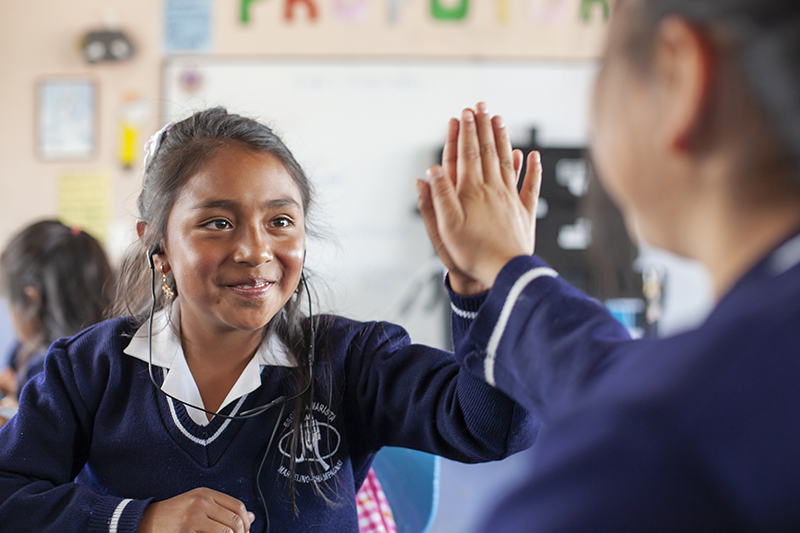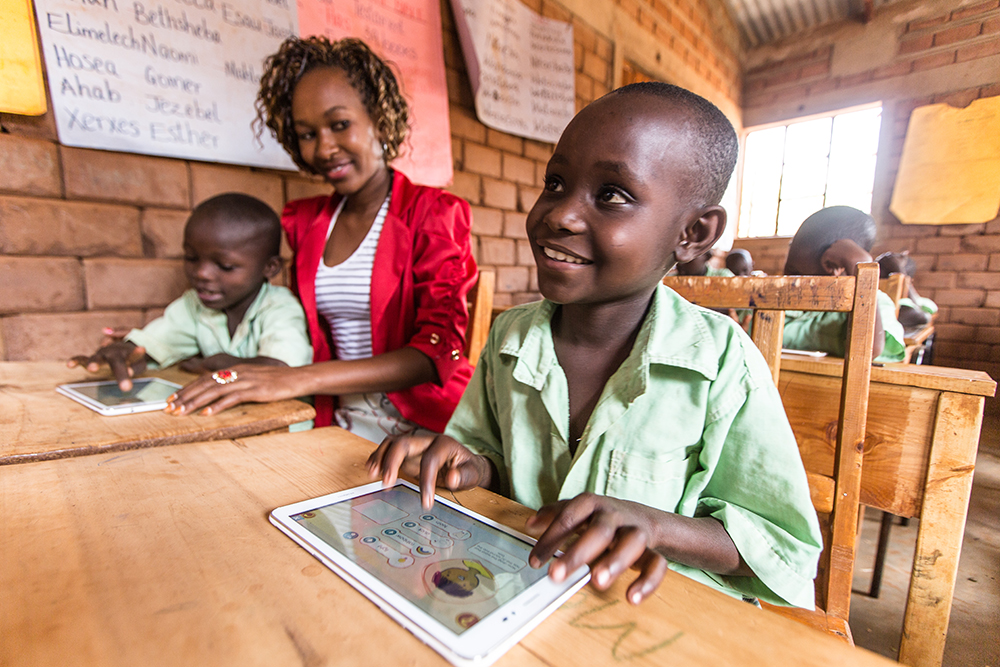Teachers: the last to know
Did you know that in only 10% of cases of bullying the victim asks a teacher for help? And only 14% tell their family. Added to this is the fact that bullies usually act when adults are not present. However, in 60% of cases they ask their friends for help. In this percentage lies the strength of the TEI Programme, an institutional coexistence programme to prevent and eradicate bullying in the classroom. Because the novelty of this programme, and perhaps the secret of its success, lies in the shift of responsibility for the management of school coexistence to the students themselves, who emotionally mentor their younger peers.
The students are the protagonists
We have already discussed some of the benefits that peer mentoring had on students’ academic achievement. The TEI Programme also demonstrates that this type of mentoring is also very beneficial for the development of socio-emotional skills and the prevention of bullying. But what is it and how does it work?
The TEI programme is a school-based peer mentoring intervention (as its acronym refers to) aimed at the prevention of school violence and cyberbullying. The main aim of the programme is to improve the school climate and promote positive school coexistence through emotional peer mentoring, with respect, empathy and commitment as its basic pillars.
Thus, in secondary school, 3rd year pupils mentor 1st year pupils; in primary school, Year 5 pupils mentor Year 3 pupils, and in pre-primary school, five-year olds mentor three-year olds. However, although students take the lead, the involvement of the education community is necessary.
How does the intervention take place?
The implementation of the programme is carried out in several stages, which are explained below:
Dissemination and awareness-raising in the school community. As we have said, the TEI Programme needs the involvement of the whole school community: teachers, management and administrative staff and families. Therefore, the first step is to disseminate the principles of the programme to all of them through a group of specialised education professionals. In addition to being informed, families are encouraged to actively participate in the implementation of the programme during the school year. Parent volunteers receive training on how to detect and act against bullying and victimisation.
Teachers training. TEI staff conduct an intensive initial training for teachers with a duration of 30 hours (10 hours face-to-face and 20 hours in virtual form). During this training, the teachers of the school create a TEI teachers’ group and a coordinator is appointed. This group is responsible for coordinating the implementation of the intervention in the school.
Training student mentors. Students who are going to act as mentors receive initial training with content on the personal qualities that a mentor should have, their functions, social skills, pro-social behaviour, empathy and problem-solving strategies. Afterwards, one follow-up session is held per quarter.
Student empowerment. During this phase, the group of teachers coordinating the implementation of the TEI in the school creates mentor-learner pairs, taking into account the age of the participants and the interpersonal skills of each one. The maximum age difference between mentor and pupil is two years and factors such as vulnerability and risk of bullying are taken into account (pupils with high interpersonal skills are often assigned to vulnerable minors).
Implementation of the intervention. The pairs carry out three specific types of activities: 1) cohesion activities, to consolidate and facilitate the relationship between the two, 2) formal and informal mentoring activities and 3) specific training activities aimed at developing skills such as emotional self-awareness, social competences and the positive use of ICT.
Closure. At the end of the course, a joint activity is carried out to award a diploma certifying participation in the TEI programme to all the parties involved (mentors, students, teachers and volunteer families).
The TEI Programme significantly reduces bullying, cyberbullying and victimisation.
The success of the TEI Programme
The TEI Programme has succeeded where others have failed. This is the result of research carried out by the Department of Health Psychology at the University of Alicante, which in 2019 was on the cover of the International Journal of Environmental Research and Public Health .
The results of the study, which involved 2,057 Spanish students aged 11-16 from 22 schools, showed a significant reduction in bullying behaviour, which decreased by 11%, and cyberbullying and cyber-victimisation, which decreased by 30% and 39% respectively. Significant improvement was also found in school climate factors such as sense of belonging, which increased by 59%, and sense of cooperation, which increased by 28%.
Getting students to take responsibility is one of the fundamental characteristics of peer mentoring; both in terms of aspects of teaching, as is the case in academic mentoring, and in conflict management and school climate, as is the case in the TEI Programme by means of either in terms of the more curricular aspects, as is the case in academic mentoring, or in terms of issues linked to crossover competencies, where the TEI Programme deals with issues of conflict management and school climate.
REFERENCES
Ferrer, R., N. Albaladejo, M. Sánchez, I. Portilla, O. Lordan and N. Ruiz. (2020). Effectiveness of the TEI Program for bullying and cyberbullying reduction and school climate improvement. International Journal of Environmental Research and Public Health.
Cover image by pikisuperstar on Freepik.






